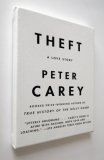Summary | Excerpt | Reading Guide | Reviews | Beyond the book | Read-Alikes | Genres & Themes | Author Bio

From the book jacket:
Los Angeles, 1991. Ambassador Maximilian Ophuls, one of the makers of the modern
world, is murdered in broad daylight on his illegitimate daughter India's
doorstep, slaughtered by a knife wielded by his Kashmiri Muslim driver, a
mysterious figure who calls himself Shalimar the clown. The dead man is a
charismatic World War Two Resistance hero, a man of formidable intellectual
ability, a former US ambassador to India and subsequently America's
counter-terrorism chief. The murder looks at first like a political
assassination, but turns out to be passionately personal.
This is the story of Max Ophuls, his killer and his daughter — and of a fourth
character, the woman who links them, whose story finally explains them all. It
is an epic narrative that moves from California to Kashmir, from Nazi-occupied
Europe to the world of modern terrorism. Along the way there is kindness, and
magic capable of producing miracles; there is also war — ugly, unavoidable and
seemingly interminable. And there is always love, gained and lost, uncommonly
beautiful and mortally dangerous.
Comment:
Rushdie, one of the most prominent novelists of today, proves that he's
still got what it takes 30 years after the publication of his first novel, with
this exploration of the clash of faiths and cultures, and the roots of
terrorism. The core questions at the heart of Shalimar the Clown
are how a nation can go from a state of religious and peaceful acceptance to
violence in just a few years, and what causes a man to become a terrorist.
In terms of genre, Shalimar is difficult to categorize as it combines
many elements - take one part political thriller, one part wartime adventure,
slosh in some allegory and magical realism (but with substantially more punch
than most books labeled as magical realism), add a touch of comedy and the
classic Indian epic Ramayana, round it off with a dollop of pop culture and have
Salman Rushdie liberally stir the pot, and you have Shalimar The Clown.
None of us have the time for all the books we want to read, but if this book (or
others by Rushdie) are currently sitting on your "should read" list, consider
moving them up to your "must read" list post haste!
"The transformation of Shalimar into a terrorist is easily the
most impressive achievement of the book, and here one must congratulate Rushdie
for having made artistic capital out of his own suffering, for the years spent
under police protection, hunted by zealots, have been poured into the novel in
ways which ring hideously true. . . . Shalimar the Clown is a powerful
parable about the willing and unwilling subversion of multiculturalism." -
Publishers Weekly.
"..... unforgettably dramatized, in a magical-realist masterpiece that equals,
and arguably surpasses, the achievements of Midnight's Children, Shame
and The Moor's Last Sigh. The Swedes won't dare to offend Islam by giving
Rushdie the Nobel Prize he deserves more than any other living writer. Injustice
rules." - Kirkus.
Salman Rushdie was born in Bombay (now Mumbai) on 19 June 1947. He went
to school in Bombay and at Rugby (a private boarding school in England), after
which he read History at King's College, Cambridge, where he joined the
Cambridge Footlights
theatre company. After graduating, he lived with his family who had moved to
Pakistan in 1964, and worked briefly in television before returning to England,
beginning work as a copywriter for an advertising agency. His first novel,
Grimus, was published in 1975.
His nine novels include Midnight's Children, The Satanic Verses, The Moor's
Last Sigh,
Fury, and
The Ground Beneath Her Feet; he has also written a collection of short
stories; a book of reportage; two volumes of essays; and a work of film
criticism. He is also co-author (with Tim Supple and Simon Reade) of the stage
adaptation of Midnight's Children, premiered by the Royal Shakespeare
Company in 2002. During his 30 year writing career he has received
multiple awards including the 'Booker of Bookers' Prize for Midnight's
Children in 1993.
![]() This review was originally published in The BookBrowse Review in October 2005, and has been updated for the
November 2006 edition.
Click here to go to this issue.
This review was originally published in The BookBrowse Review in October 2005, and has been updated for the
November 2006 edition.
Click here to go to this issue.

If you liked Shalimar The Clown, try these:

by Vikram Chandra
Published 2008
Vikram Chandra's novel draws the reader deep into the life of Inspector Sartaj Singh—and into the criminal underworld of Ganesh Gaitonde, the most wanted gangster in India. It is is a story of friendship and betrayal, of terrible violence, of an astonishing modern city and its dark side.

by Peter Carey
Published 2007
Michael Boone is an ex–"really famous" painter acting as caretaker for his younger brother, a damaged man of childlike emotional volatility. When a mysterious woman comes into their lives, she upsets their delicate equilibrium sets in motion a chain of events that could be the making—or the ruin—of them all.
Too often we enjoy the comfort of opinion without the discomfort of thought.
Click Here to find out who said this, as well as discovering other famous literary quotes!
Your guide toexceptional books
BookBrowse seeks out and recommends the best in contemporary fiction and nonfiction—books that not only engage and entertain but also deepen our understanding of ourselves and the world around us.